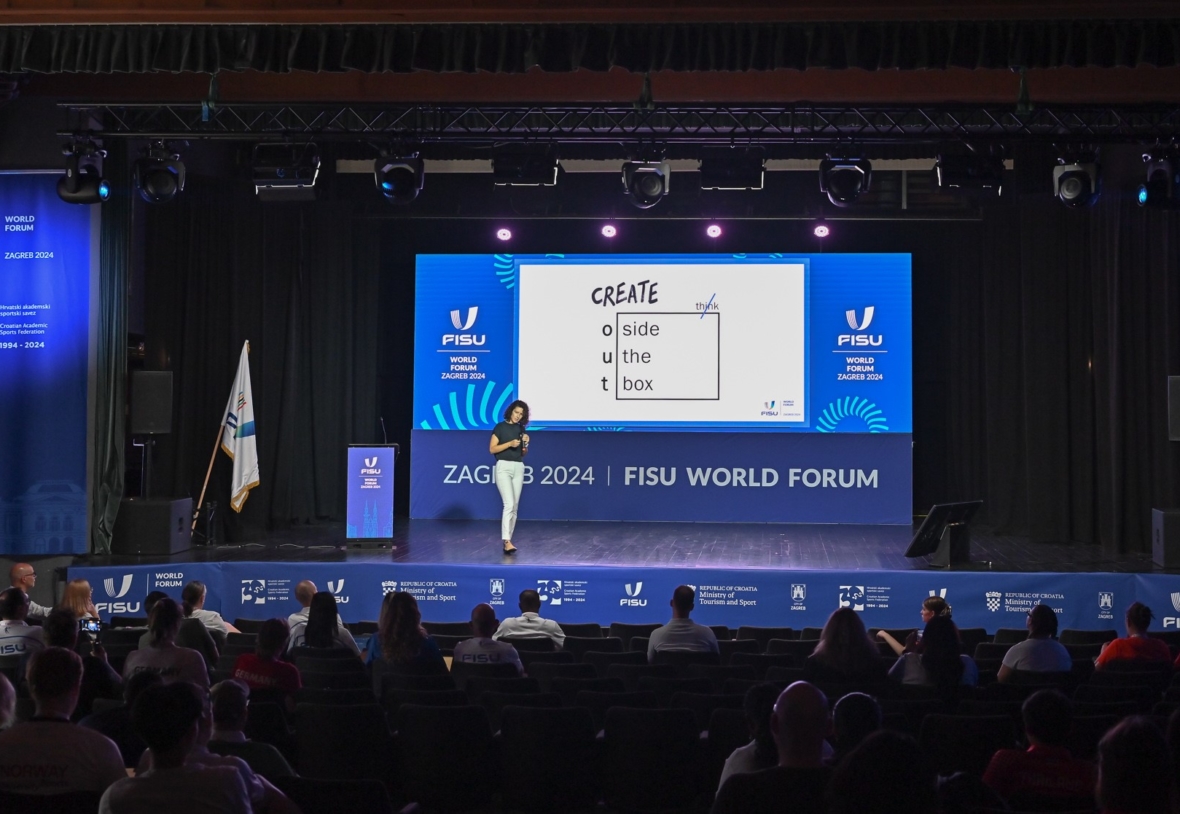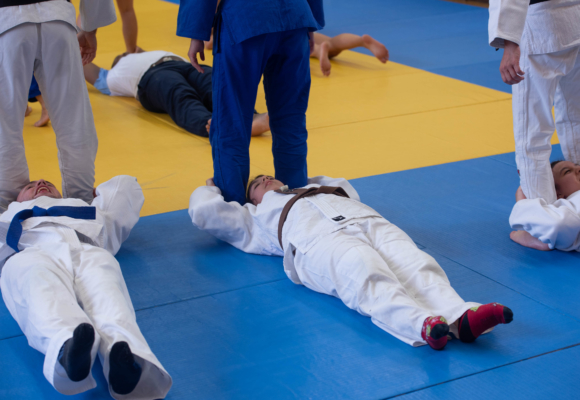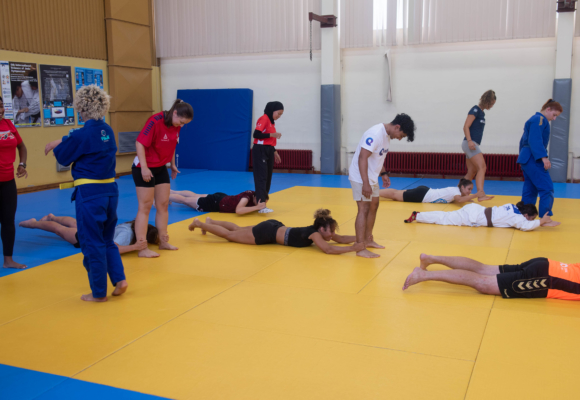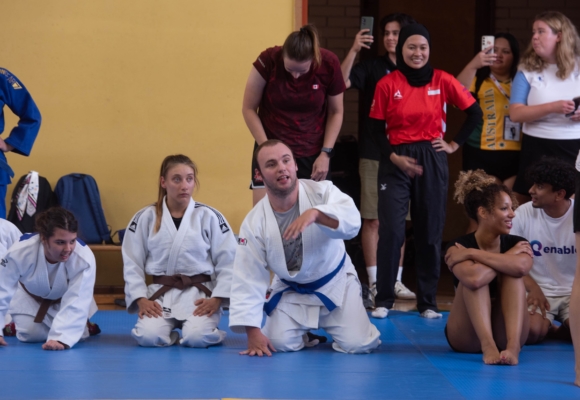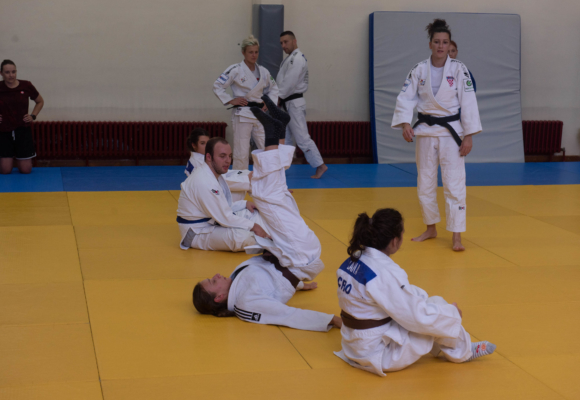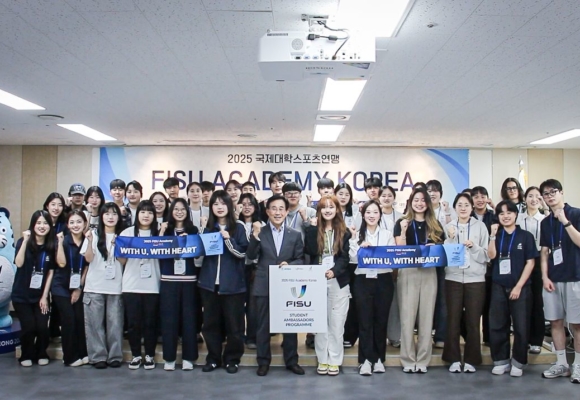Marina Drašković and Aziza Sbaity are both women, athletes and immensely inspirational. On the 4th day of the Zagreb 2024 FISU World Forum, they presented their journeys to a room of students, volunteers and officiels who were all deeply moved by what they heard.
Marina Drašković took the audience in the main hall of the Zagreb 2024 FISU World Forum by surprise, telling them about her failures. When she was young, the Croatian little girl put judo first in her life with one sole goal: an Olympic gold medal. But that didn’t happen. The strong-willed economics student then focused her attention on “becoming a millionaire”. But that didn’t happen either. And she told the Zagreb audience that this was probably the biggest blessing of her life, because otherwise she wouldn’t have lived the amazing adventure that she is living now.
No experience, only sheer determination
Marina Drašković had a friend who taught aïkido to children with cerebral palsy. She immediately decided she wanted to do the same with judo, a sport she has now been involved with for 30 years. She started without experience and without help, but with an enormous dose of determination. “If you have a crazy idea that goes beyond the system you are in, don’t hesitate, go for it!”
There is nothing she loves more than push boundaries. Nothing seems impossible to the multiple Croatian judo champion, who is now head of the Adapted Judo programme within the European Judo Union (EJU) and founder of Fuji, a judo club for people with disabilities. There are 75 children on the waiting list to join her club, where young ones both with and without disabilities fight on the tatamis with equal pleasure and talent: “Don’t think of what people with disabilities can’t do. Don’t think about their limitations. Focus on what they can do and you’ll realise the possibilities are endless”.
Learning about empathy is learning about life
At Fuji, children aged between 10 and 15 have become the natural assistants to their friends who can’t walk or even eat alone: “Learning empathy is learning about life, summarises Drašković. Most of them will only understand this once they become parents themselves.” They share activities far beyond the dojo and never stop at obstacles like a staircase, or people’s opinions.
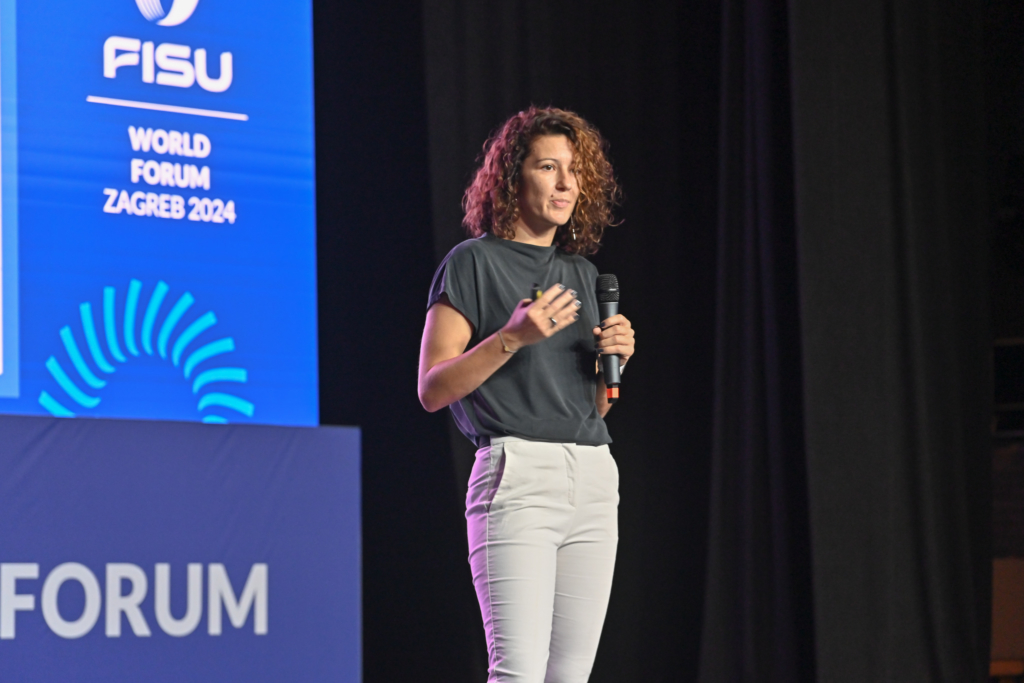
Marina Drašković excels in powerful punchlines, that, unlike her judo moves, don’t throw you to the ground, but make you want to stand strong: “The moment we will erase the word “inclusion” from the dictionary, we’ll know we have succeeded in our mission.”
Marina has been an inspiration for people all around the world. Judo specialists from Japan have even travelled to Croatia to learn her methods and take them back home. The participants to the FISU Forum also had the chance to practice adapted judo with those children with disabilities, as part of a bonus sport in the programme, that already includes beach-volleyball and futsal.
Students practising adapted judo with young judokas with cerebral disabilities
An extremely moving and funny film illustrates her journey and the ones of her young judokas with cerebral palsy. It id not fully available to the public yet, but this small piece already shows hos well it illustrates one of Marina Drašković’s best quotes: “Disability doesn’t cause habitability, society does.”
Not fast enough to escape racism
Marina Drašković then passed the baton to Aziza Sbaity, an equally inspiring athlete, who specialises in the 100 m sprint and is the fastest woman in Lebanon’s history. But she is also part of the BBC’s list of 100 inspiring and influential women from around the world for 2023.
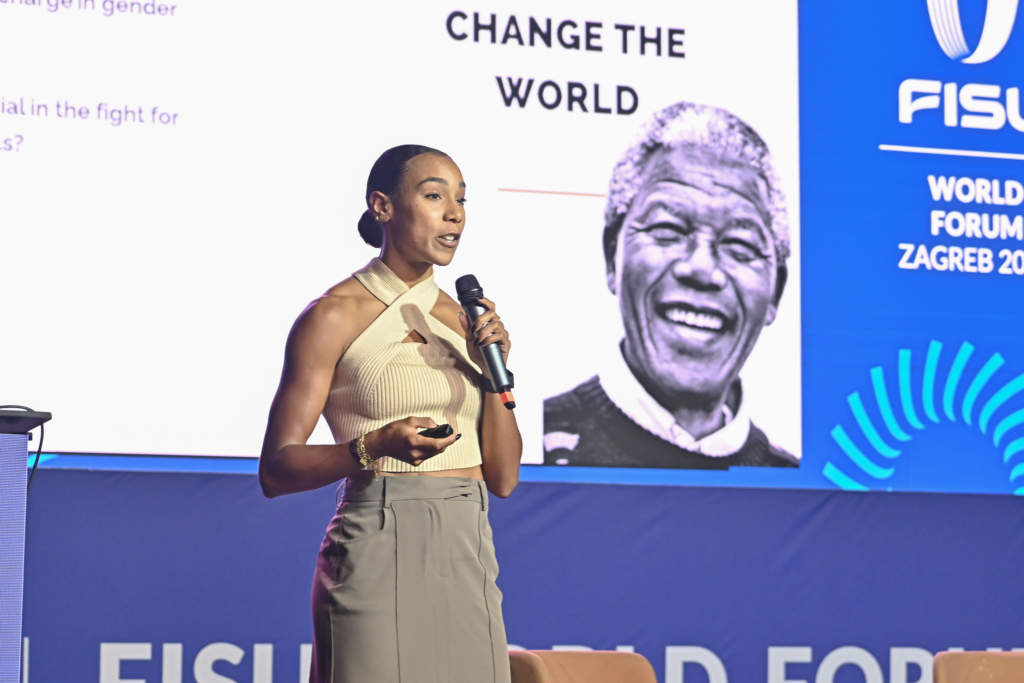
Born to a Liberian mother and Lebanese father, she moved to Lebanon aged 11. She was bullied at school because of her origins, but discovered that she could run fast and not only beat the other girls from her age group, but also the boys. But somehow, she first chose basketball over sprinting “because I needed to feel a community around me.”
Colour-based classism
In 2018, she beat the Lebanese 100m record for the first time. “I discovered that running fast gave me a platform to speak about racism” in a country where the colour of her skin led to colour-based classism. And on top of that, she had to face patriarchy, with comments along the lines of: “that is great, you are extremely good at practising your sport. But when are you going to get married and have children?”
Today, she manages to say it out loud, even with smile, as she looks back on her trajectory. “It wasn’t planned, it all happened pretty naturally. We have mental toughness as athletes, but the love and support from our family and friends is what gives us this extra strength to be ourselves.”
Aziza’s Sbaity, who still trains twice a day, fights the clock and prejudice. “Athletes are more than just that. We can use our voice to create the change we want in the world. The athlete and the person are inseparable.”
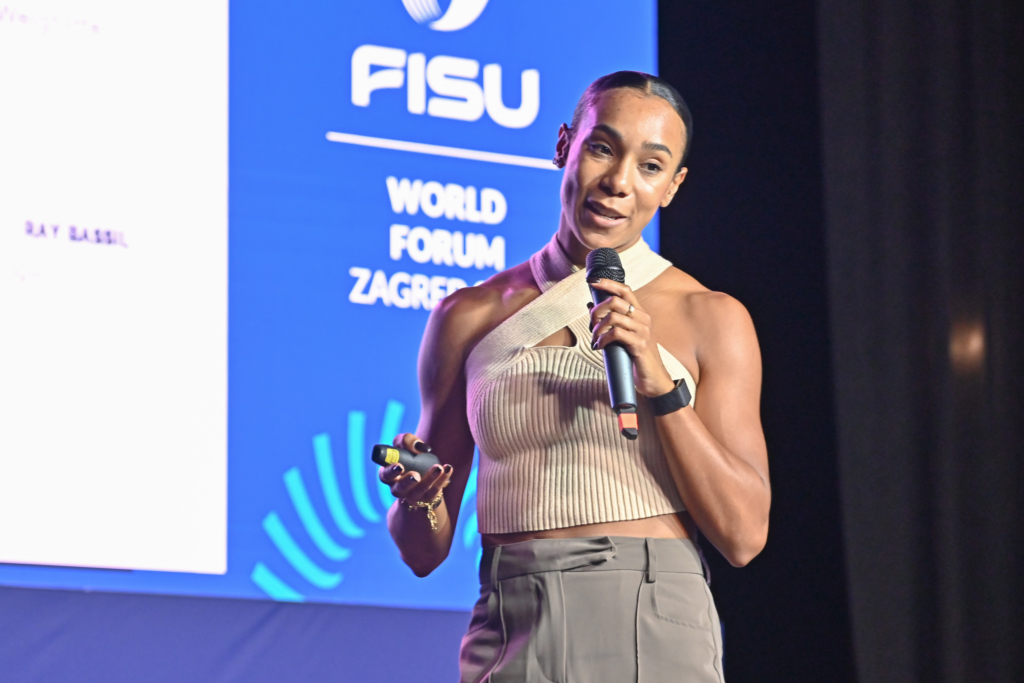
Today she has made the cover of “GQ” magazine and is part of the 100 most influential and inspirational women’s list. She looks up at the likes of Lewis Hamilton “who spoke far beyond his sport to create the most amazing rippling effect”.
A women of her time, she is conscious of the power of social media and is determined to use it the right was and make the most of it: “It is not the amount of followers you have that makes a difference, but the dedication you put into your cause”.
